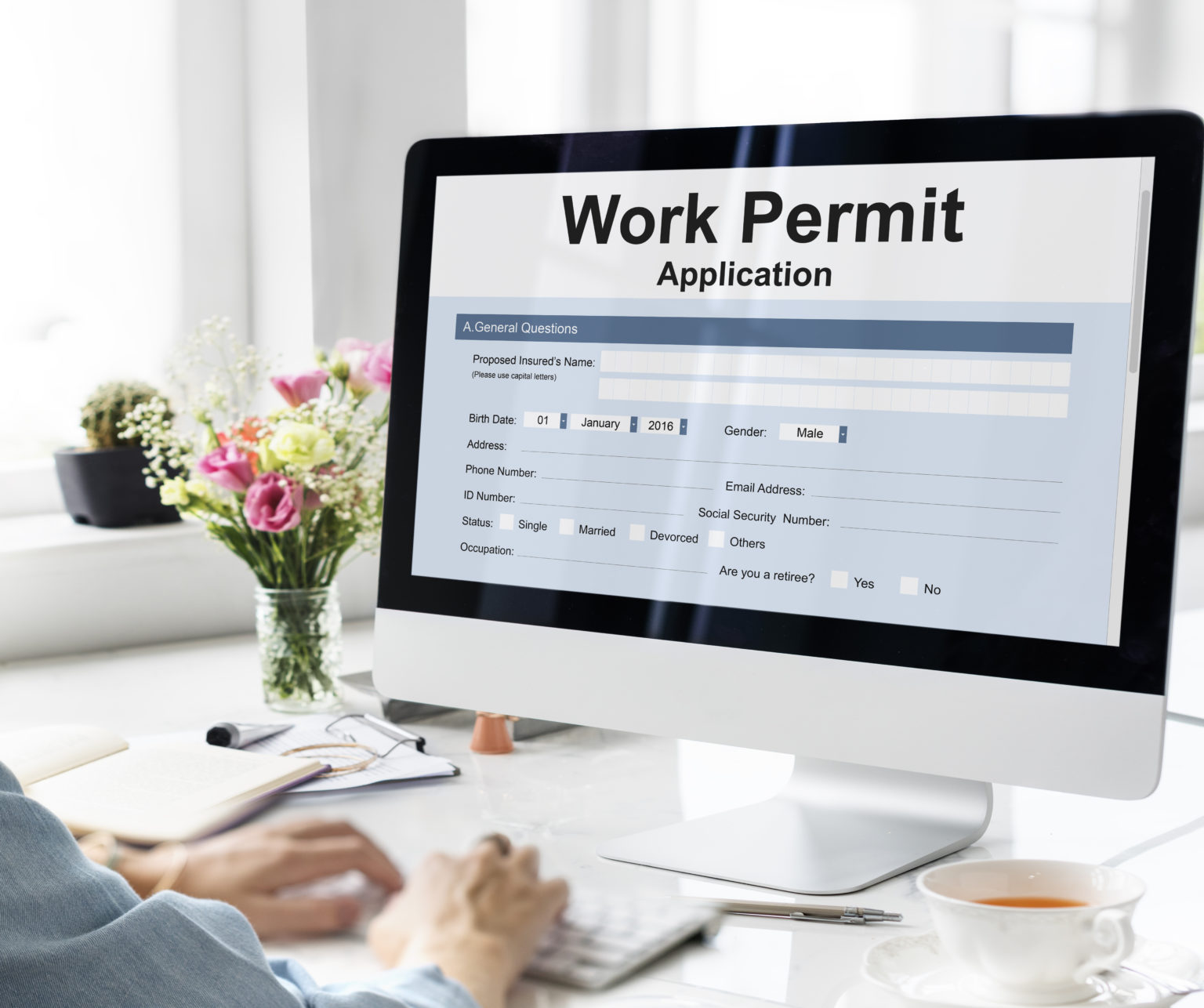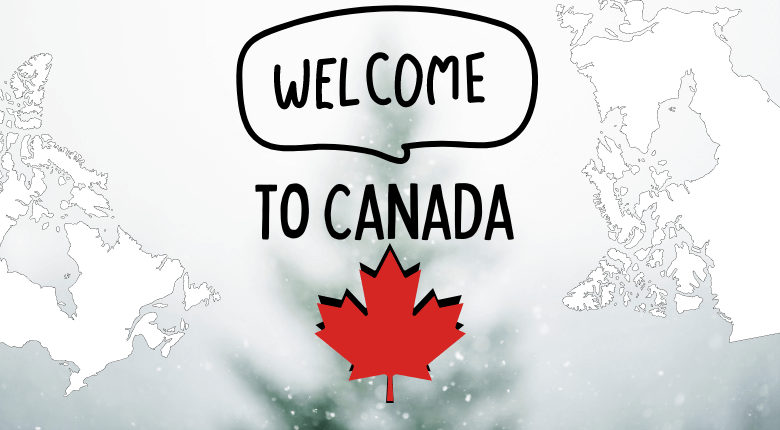Canada is a country that welcomes newcomers from all around the world. With its strong economy and numerous job opportunities, it has become a popular destination for people seeking better career prospects and a higher quality of life. If you are a newcomer to Canada and want to work here, you will likely need to obtain a work permit. This blog post will discuss the requirements for obtaining a work permit in Canada as a newcomer.
What is a Work Permit?
A work permit is a document issued by the Canadian government that allows foreigners to work legally in Canada. It is a requirement for most foreign nationals who wish to work in Canada temporarily. A work permit authorizes the holder to work for a specific employer in Canada and a specific period.
Types of Work Permits
Two types of work permits are available in Canada: open work permits and employer-specific work permits. An open work permit allows the holder to work for any employer in Canada, while an employer-specific work permit restricts the holder from working for a specific employer.
Requirements for Obtaining a Work Permit

To obtain a work permit in Canada as a newcomer, you must meet certain requirements. These requirements vary depending on your situation and the type of work permit you are applying for. Here are some of the general requirements for obtaining a work permit in Canada:
Job Offer from a Canadian Employer
In most cases, you will need a job offer from a Canadian employer before you can apply for a work permit. The job offer must be genuine, and the employer must provide a Labour Market Impact Assessment (LMIA) or demonstrate that they are exempt from the LMIA process. An LMIA is a document issued by Employment and Social Development Canada (ESDC) that verifies that there is a need for a foreign worker to fill the job and that no Canadian citizen or permanent resident is available to do the job.
You do not need a job offer if you are applying for an open work permit. However, there are certain restrictions on who is eligible for an open work permit.
Proof of Identity
You must provide proof of your identity when applying for a work permit. This can be in the form of a passport or other government-issued identification document.
Criminal Record Check
Before issuing a work permit, the Canadian government will conduct a criminal record check to ensure that you do not have a criminal record or pose a security risk to Canada. You may be required to provide fingerprints and undergo a security screening.
Medical Examination
In some cases, you may need to undergo a medical examination to obtain a work permit. This is typically required if you will be working in certain occupations or if you are coming from a country with a high incidence of tuberculosis.
Language Proficiency
Depending on the type of work you will be doing in Canada, you may need to demonstrate proficiency in English or French. This is typically done through language tests such as the International English Language Testing System (IELTS) or the Canadian English Language Proficiency Index Program (CELPIP).
Ability to Support Yourself and Any Dependents
You must be able to prove that you have enough money to support yourself and any dependents while in Canada. This includes covering the cost of living expenses such as rent, food, and transportation.
Compliance with Canadian Immigration Laws
You must comply with all Canadian immigration laws while in Canada. This includes not working for any employer other than the one named on your work permit and leaving Canada before your work permit expires.
Applying for a Work Permit

To apply for a work permit in Canada, you must apply for Immigration, Refugees and Citizenship Canada (IRCC). The application process can be done online or by mail. You will need to provide all the required documents and pay the application fee.
The processing time for a work permit varies depending on the type of work permit you are applying for and where you are applying from. Generally, it takes between two weeks and several months to process a work permit application.
In some cases, you may be able to apply for a work permit at the port of entry when you arrive in Canada. However, this is only possible if you are coming from a country that does not require a visa to enter Canada.
Types of Work Permits

In addition to open and employer-specific work permits, several other types of work permits are available in Canada. These include:
International Experience Canada (IEC) Work Permit Program
The IEC program allows young people from certain countries to work and travel in Canada for up to two years. To be eligible for the program, you must be between the ages of 18 and 35, depending on your country of origin.
Intra-Company Transfer Work Permit
This type of work permit is for multinational companies that need to transfer employees to Canada for a temporary period. The employee must have been working for the company for at least one year before being transferred to Canada.
NAFTA Work Permit
Under the North American Free Trade Agreement (NAFTA), citizens of Canada, the United States, and Mexico may be eligible for a work permit to work in each other’s countries. This applies to certain occupations, such as business professionals, traders, and investors.
Spousal Work Permit
If you are married or in a common-law relationship with a Canadian citizen or permanent resident, you may be eligible for an open work permit that allows you to work for any employer in Canada.
Bridging Open Work Permit
If your current work permit is expiring soon and you have applied for permanent residency in Canada, you may be eligible for a bridging open work permit that allows you to continue working in Canada while your application is being processed.
Renewing a Work Permit
If you have a valid work permit and want to renew it, you must apply to IRCC before your current permit expires. The renewal process is similar to the initial application process, and you must provide all the required documents and pay the application fee.
It is important to apply for a work permit renewal before your current permit’s expiry date to avoid gaps in your ability to work in Canada. If your work permit expires before you receive a decision on your renewal application, you cannot work until a new permit is issued.
Changing Jobs or Employers
If you have an employer-specific work permit and want to change jobs or employers, you must apply for a new work permit. The new employer must provide an LMIA or demonstrate that they are exempt from the process before issuing a new work permit.
If you have an open work permit, you can work for any employer in Canada without needing to obtain a new work permit. However, if you wish to switch to an employer-specific work permit, you must follow the same process as a newcomer applying for a work permit.
Requirements for Obtaining a Work Permit in Canada as a Newcomer FAQ
Q: Do I need a job offer to obtain a work permit in Canada?
A: In most cases, yes. You will need a genuine job offer from a Canadian employer, and the employer must provide an LMIA or demonstrate that they are exempt from the process.
Q: How long is a work permit valid?
A: The length of a work permit varies depending on the type of work permit you have been issued. It can range from a few months to several years.
Q: Can I apply for permanent residency while working in Canada on a work permit?
A: Yes, you can apply for permanent residency while working in Canada on a work permit. Having Canadian work experience can increase your chances of being approved for permanent residency.
Q: What is an LMIA?
A: An LMIA is a Labour Market Impact Assessment, which is a document issued by ESDC that verifies there is a need for a foreign worker to fill the job and that no Canadian citizen or permanent resident is available to do the job.
Q: Do I need to undergo a medical examination to obtain a work permit?
A: In some cases, yes. Certain occupations require a medical examination, and if you are coming from a country with a high incidence of tuberculosis, you may also be required to undergo a medical examination.
Q: Can I switch from an open work permit to an employer-specific work permit?
A: Yes, you can switch from an open work permit to an employer-specific work permit. However, you must go through the same application process as a newcomer applying for a work permit.
Q: Can I work for any employer in Canada with an open work permit?
A: Yes, an open work permit allows you to work for any employer in Canada without needing a new work permit. However, there are certain restrictions on who is eligible for an open work permit.
Q: How long does it take to process a work permit application?
A: The processing time for a work permit application varies depending on the type of work permit you are applying for and where you are applying from. Generally, it takes between two weeks and several months to process a work permit application.
Q: Can I apply for a work permit at the port of entry when I arrive in Canada?
A: In some cases, yes. However, this is only possible if you are coming from a country that does not require a visa to enter Canada.
Q: What happens if my work permit expires before I receive a decision on my renewal application?
A: If your work permit expires before you receive a decision on your renewal application, you cannot work until a new permit is issued. It is important to apply for a work permit renewal before your current permit’s expiry date to avoid gaps in your ability to work in Canada.
Conclusion
Obtaining a work permit in Canada as a newcomer requires meeting certain requirements and going through a thorough application process. However, obtaining a work permit and taking advantage of the many job opportunities available in Canada is possible with the right qualifications and documentation. Whether you seek temporary or permanent employment in Canada, it is important to familiarize yourself with the different types of work permits available and prepare your application well in advance to ensure a smooth and successful transition to working and living in Canada.
- Yonge-Dundas Square in Toronto is Now Called “Sankofa Square” - December 17, 2023
- Best Western Brooks’ SureStay Plus debuts in Alberta - December 16, 2023
- Air Canada Arrives in Tulum, Mexico as the First Canadian Airline - December 16, 2023




